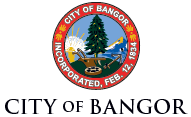
For Immediate Release – March 9, 2023
Contact: Amanda Smith, Water Quality Director
(207) 992-4471 – amanda.smith@bangormaine.gov
Debbie Laurie, City Manager
(207) 992-4201 – debbie.laurie@bangormaine.gov
Open Letter on Biosolids from the Bangor City Council
Dear State of Maine Legislature, State Elected and Appointed Officials, Municipal Elected Officials, and Federal Officials,
The City of Bangor, like many municipalities and quasi-municipal wastewater districts, remain extremely concerned about our limited, allowable disposal options for biosolids (commonly referred to as sludge) from wastewater treatment facilities.
The current approach of landfilling and transporting to Canada is tenuous. Should the ability to transport materials out of state cease to exist, there is inadequate operational landfill capacity to meet the need, thereby returning the State to crisis level. In order to avoid devastating impacts to our communities including public health, housing, economic development, recreation, tourism, and more, an alternative option must be available for implementation within a matter of weeks, if not days, should the current approach fail.
LD 1911 and 1639 were passed in the 130th Legislative Session with different effective dates, thereby staggering the impact. LD 1911 prohibited land application of biosolids and sale and distribution of compost and other agricultural products containing biosolids. This has resulted in facilities, who relied on beneficial reuse of biosolids, now being forced to landfill. LD 1639 prohibited some waste, from out-of-state, entering Maine. Therefore, landfills are seeing an increased demand for biosolid disposal at the same time they are receiving fewer bulking materials which stabilize and support the structure of landfills.
We find ourselves in the awkward position of a politicized battle in which we do not wish to participate – we only seek an environmentally responsible and sustainable remedy for managing biosolids in Maine.
Wastewater will never stop flowing to treatment facilities, from residents flushing their toilets to industries that rely on wastewater treatment (e.g. dairy production, metal finishing, breweries, etc.). We take our responsibility to stand between raw sewage and the waters of our state very seriously. In the event we cannot remove biosolids from the system, we, like many others, will be in the position of violating federal law by discharging untreated sewage into the Penobscot River (and other waterways). Consequently, catastrophic damage to our infrastructure will occur, culminating in untold environmental, health, and economic consequences.
We implore the State of Maine Legislature to take the necessary steps NOW to create additional avenues for Maine to responsibly manage its biosolids.
We are committed to making our staff and resources available to participate in the development and implementation of a long-term, sustainable solution that will benefit both the people and waters of our great state.
----
The City encourages citizens across Maine to reach out to their State elected officials to encourage timely action to create responsible and sustainable remedies to avoid an on-going crisis as it relates to the lack of options for biosolid disposal.
##
The City of Bangor, Maine is a service center community of 31,753 residents and is the county seat of Penobscot County. Bangor is the major commercial and cultural center for much of northern and eastern Maine. The City is an equal opportunity employer and service provider. For information on City projects and news, see www.bangormaine.gov.